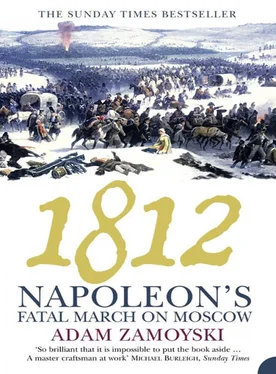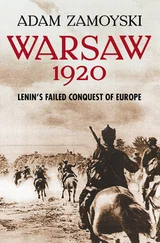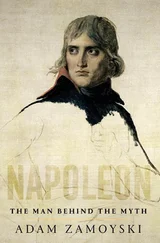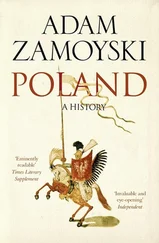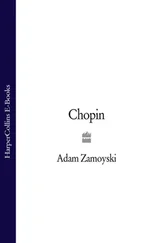His behaviour and his policies were rapidly losing Napoleon the dominion over hearts and minds he had enjoyed in earlier years, while a great internationale of alienated people all over Europe was gathering, bound together only by their detestation of him. Even Wellington was beginning to see and to portray his war against Napoleon in Spain as a part of some kind of moral crusade. 12
None of this was of any immediate consequence, and Napoleon’s position in Europe was still paramount. He controlled his vast imperium through a web of loyalty, beginning with his crowned brothers. He had created all over Europe a new international aristocracy beholden to him, endowed with fiefs which had fallen vacant through the mediatisation of the Holy Roman Empire or through conquest, and by 1812 the imperial almanac listed four princes, thirty dukes, nearly four hundred counts and over a thousand barons, not including the titles Napoleon had given to members of his own family.
It is also worth noting that he had many natural allies bound to him by self-interest of one sort or another. Frederick William and Hardenberg feared the social upheaval that might result from any national revival more than they resented Napoleon. Others in Germany and Europe as a whole feared the relentless onward march of Russian expansion and believed that a weakening of French influence would entail Russian hegemony, and distrusted Alexander’s motives. 13
Napoleon’s spies nevertheless kept a close watch on potential subversives all over Germany and on the support they were receiving from Russia. By the summer of 1810 he was growing irritated by the numbers of Russians visiting European courts and capitals trying to incite people against France. In Vienna, the former ambassador Count Razumovsky, the salonière Princess Bagration and Napoleon’s old Corsican enemy Pozzo di Borgo, now in Russian uniform, made up a real propaganda network between them. Others were rallying anti-Napoleonic sentiment in the watering places of Germany. He asked Alexander to recall them all to Russia, but received scant satisfaction.
In November 1810 Talleyrand’s successor as Foreign Minister, Jean-Baptiste de Champagny, reported to Napoleon that ‘a vast revolution’ was brewing in Germany, fuelled by national hatred of France. This gathered in strength as tension between France and Russia mounted, and as the Continental System began to bite. Although he tended to make light of the threat, Napoleon was beginning to take more serious note of it, and declared his intention of ‘uprooting the German national spirit’. And the only way he would be able to ‘uproot’ this burgeoning growth was by cutting off its chief source of nourishment, which came from Russia. 14
Конец ознакомительного фрагмента.
Текст предоставлен ООО «ЛитРес».
Прочитайте эту книгу целиком, купив полную легальную версию на ЛитРес.
Безопасно оплатить книгу можно банковской картой Visa, MasterCard, Maestro, со счета мобильного телефона, с платежного терминала, в салоне МТС или Связной, через PayPal, WebMoney, Яндекс.Деньги, QIWI Кошелек, бонусными картами или другим удобным Вам способом.
